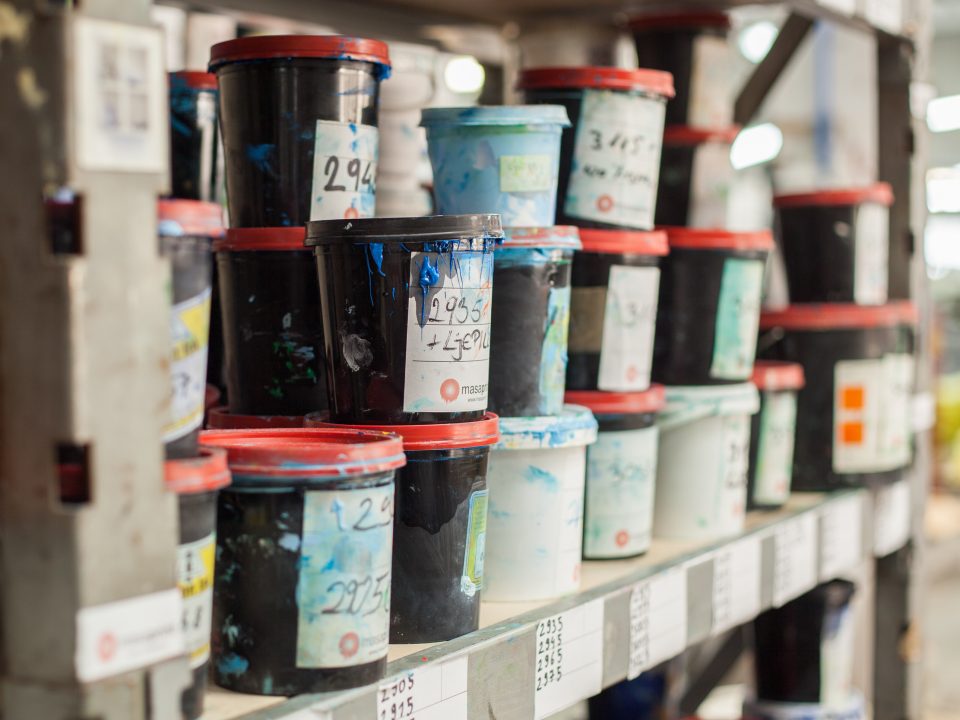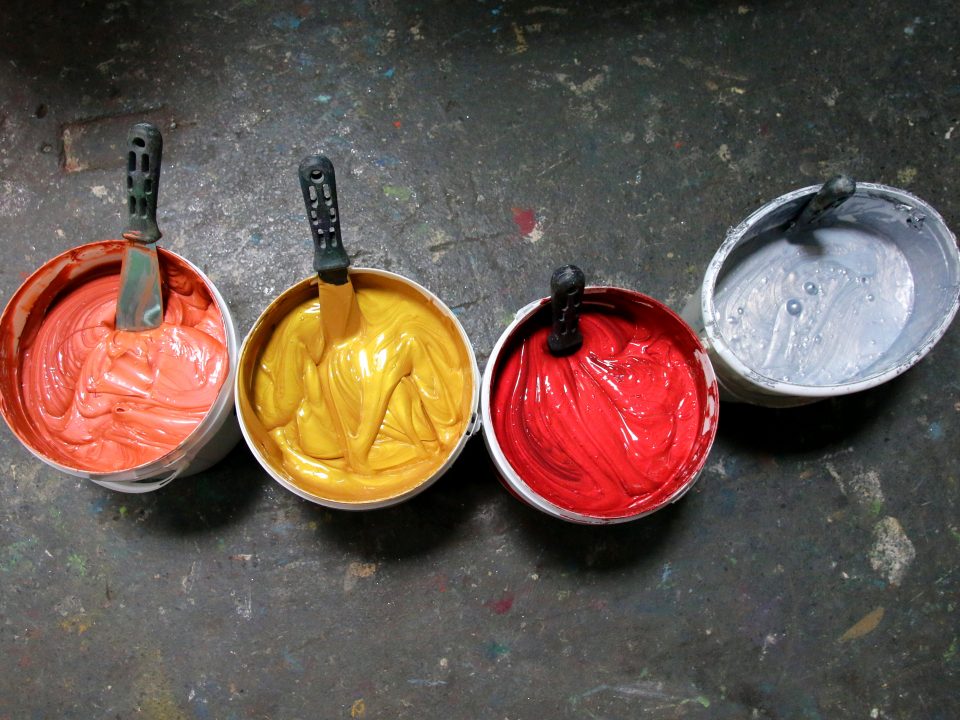Water-based and plastisol inks are the two most common inks in screenprinting industry.
Are you wondering which one is better for your garments?
Here are the main differences between the two you need to know about.
In General
Plastisol is the most common ink used in t-shirt printing. It is a PVC and phthalate-based ink made for apparel.
Plastisol is the current industry standard as it:
- works very well on all screen printing machines,
- is much easier to use in production and
- is also much cheaper than water-based inks.
Water-based ink is an eco-friendly trend in the industry. It is a two-part system that requires base and pigments (added to the base to create colors).
Water-based inks are usually used in fashion retail printing. With this type of ink, producers are able to achieve that most-wanted soft hand feel and avoid possible phthalate negative health impacts.
Moreover, water-based ink is a higher quality ink but requires significant training for manufacturers/screen printers to use it.
In addition, plastisol ink has a broad diversity of specialty products, while water-based has a large but healthy.
Durability and Touch
Water-based prints last as long as the garment does. This is a result of the fact that the ink dyes the garment directly, actually switching the color of the shirt and with the color of the graphic.
The plastisol inks, on the other hand, lay directly on the material, overlaying the shirt.
Nevertheless, after a long time, plastisol ink prints eventually do tear down. A break down normally happens in form of a broken, stripped or a scaled print on the shirt.
If you look at the touch, the water-based print is soft, smooth, breathable and actually a part of the garment. After the first wash, you are nearly unable to feel the picture on the shirt.
On the other hand, prints from plastisol inks feel solid, dense thick, and unbreathable.
We have tried to give you an objective outlook on both the pros and cons of both water-based and plastisol ink.
Here at Masaprint, we are committed to switching on water-based inks, in order to increase the satisfaction of clients as well as to take care of our environment and health.
If you have any questions about our inks, or you need help with your next project, contact us HERE!
Every person and every industry has to be aware that we did not inherit the earth from our ancestors, but we borrowed it from our grandchildren.
Here at Masaprint, we are committed to acting accordingly by using water-based inks, in order to increase the satisfaction of current clients as well as future generations.
What is water-based ink?
It’s a super soft high-end ink, commonly used in fashion retail printing.
Water-based inks have what’s called a “soft hand” feel that many consumers desire today. The ink cannot be easily felt when you run your hand over the design. It is breathable and feels like a part of the garment. Therefore, more and more people chose water-based ink for T-shirts as it creates a more comfortable clothing piece. A shirt with too much of a “hard hand” design as a result of plastisol inks can be very irritating, especially during your summer vacations.
Why we use water-based ink?
Not only does this water-based ink technology offer a soft touch to the garment what increases customer satisfaction, but it is also environmentally friendly. Water-based ink uses water as a solvent what makes them eco-friendly, unlike plastisol ink, which contains PVC and phthalate. Besides of all above-mentioned benefits of water-based inks to our clients and although plastisol is still the most common ink used in T-shirt printing, we took over our own responsibility for future generations and replaced plastisol with water-based inks.
We are translating our knowledge from the fashion industry to dress and promote your brand for success and future well-being.
The type of ink one chooses for a project determines the look and quality of the final product, and we choose to use water-based ink for the best results.
Have a screen printing project that you have questions about? Or need something printed for your business?
GET IN TOUCH and let us know how we can help with your next project.



